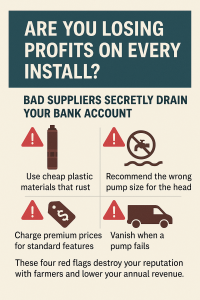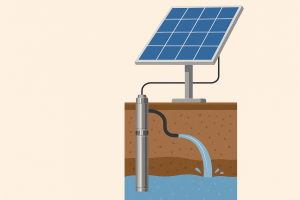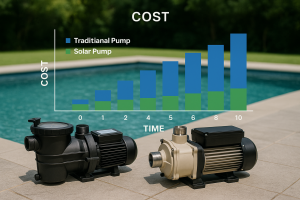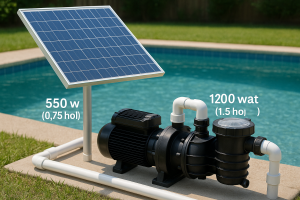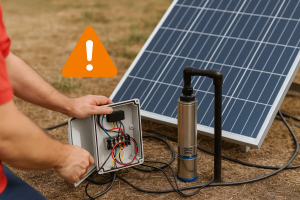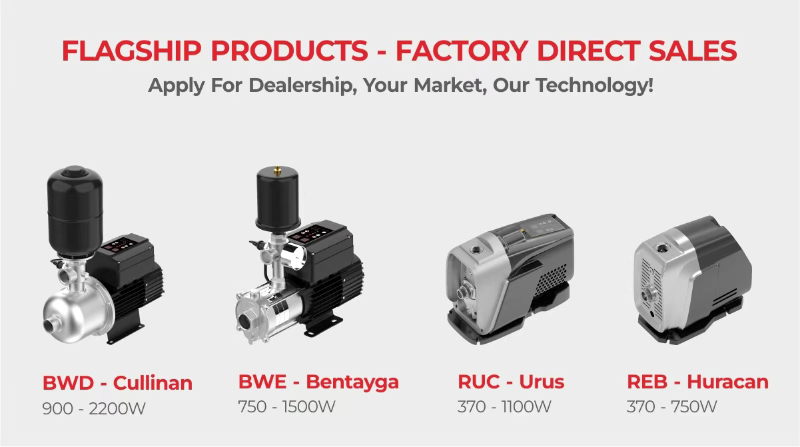Struggling with high electricity bills or an unreliable grid for your water pump? This constant worry can disrupt your operations and hurt your bottom line.
If you have a stable and cheap power grid, an electric pump is a simple choice. For areas with unreliable or expensive electricity, a solar well pump is a better long-term investment due to its operational cost savings and energy independence.
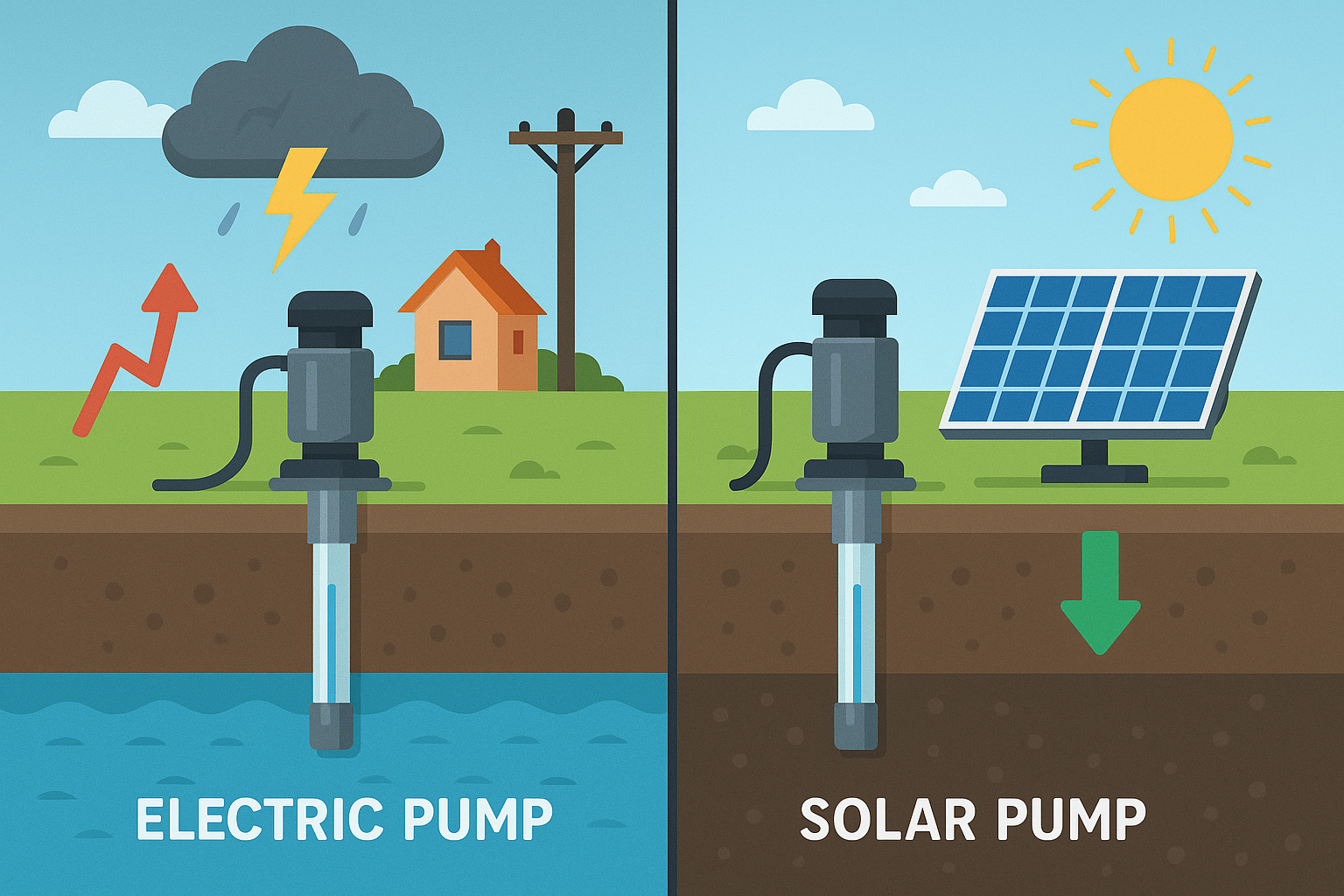 "Solar Well Pump vs Electric Well Pump"
"Solar Well Pump vs Electric Well Pump"
This choice is about more than the initial price tag. It involves thinking about long-term reliability, running costs, and what suits your location best. We need to look at the details to find the right answer for your business. Let's break down the key differences to help you decide.
Is a solar well pump more expensive than an electric pump?
Worried about the high upfront cost of solar technology? This initial investment might seem large, making you question if it is the right financial move for your business.
Yes, a solar well pump system has a higher initial purchase price because it includes solar panels and a controller. However, it has almost no running costs. An electric pump is cheaper to buy but has ongoing electricity bills that add up over time.
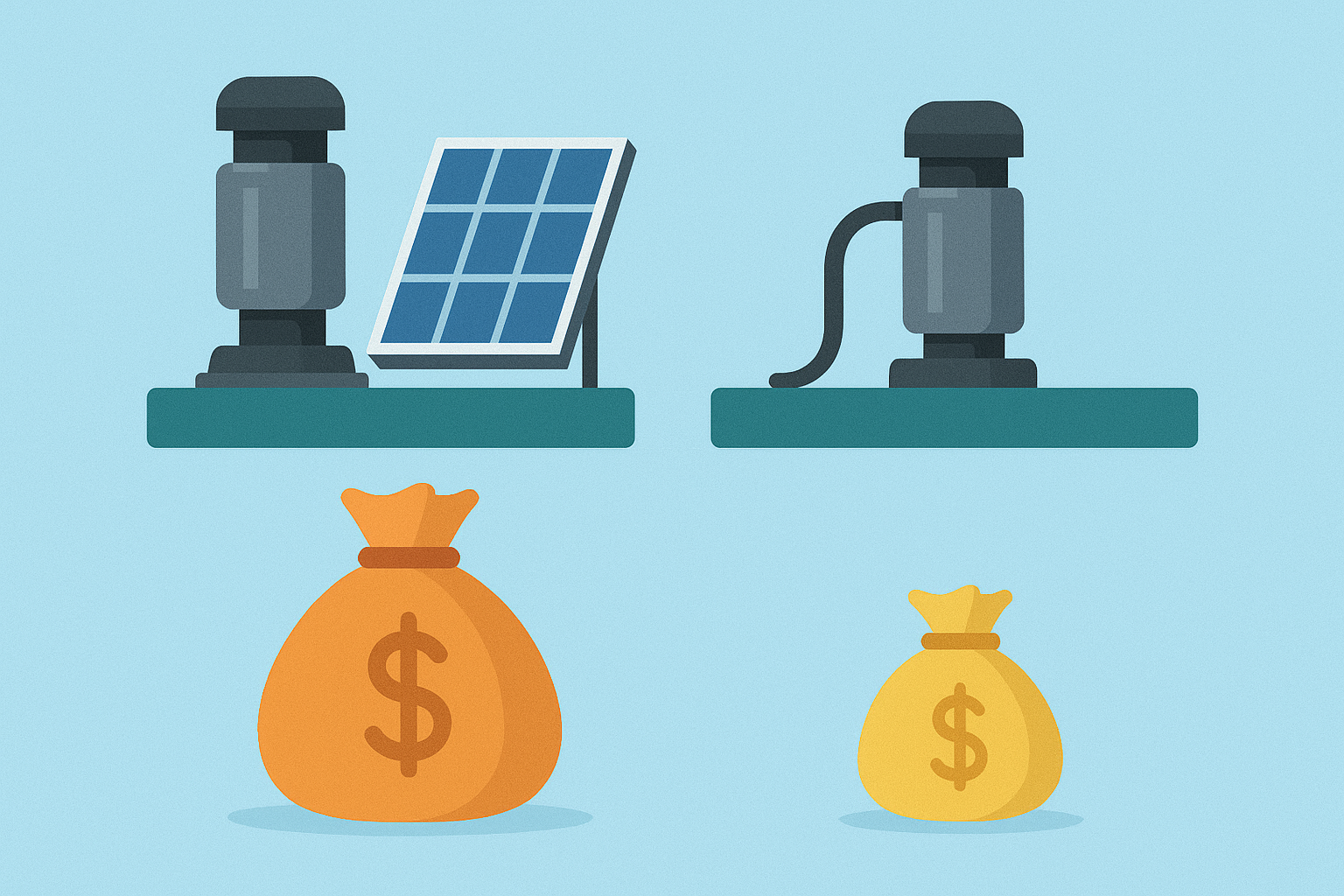 Cost Comparison: Solar vs. Electric Pumps"
Cost Comparison: Solar vs. Electric Pumps"
When my clients first ask about pricing, I always tell them to look at the total cost of ownership, not just the purchase price. A solar pump seems expensive at first, but an electric pump makes you pay forever. We need to look at the initial investment and the long-term operational costs to see the full picture. For a business, this long-term view is what really matters for profitability. I once worked with a distributor in Zambia whose farm clients saw a full return on their solar pump investment in just under three years. After that, the water was practically free.
The Initial Investment
A solar well pump package includes the pump, solar panels, and a solar pump inverter or controller. An electric pump is just the pump unit itself. You also need to factor in the cost of connecting to the power grid, which can be very expensive if your well is far from a power line. So, while the electric pump looks cheaper on the shelf, the total initial cost can sometimes be closer than you think.
Long-Term Operational Costs
This is where solar pumps have a huge advantage. The sun's energy is free. Once the system is installed, your running cost is nearly zero. Electric pumps, on the other hand, require you to pay for electricity every month. These prices can go up, making your costs unpredictable. For a farm or business that needs water every day, these electricity bills become a major operational expense over the years.
A Simple Cost Breakdown
To make it clearer, let's look at a table. This shows how the costs compare over a five-year period. You can see the initial saving from an electric pump is quickly lost to running costs.
| Cost Factor | Solar Well Pump | Electric Well Pump |
|---|---|---|
| Initial Purchase | Higher (Pump, Panels, Inverter) | Lower (Pump only) |
| Installation | Can be higher (panel mounting) | Can be high (if grid access is far) |
| Running Cost | Near zero (free solar energy) | Continuous (monthly electricity bills) |
| Maintenance | Low (brushless motors) | Moderate (depends on model) |
| Total Cost (5 yrs) | Initial Cost + Minimal Maintenance | Initial Cost + 5 Years of Bills |
Which pump is more reliable in remote or off-grid areas?
Facing frequent power outages that stop your water supply? This unreliability can damage crops and disrupt daily life, causing a lot of stress and financial loss.
A solar well pump is much more reliable in remote or off-grid locations. It works independently from the electrical grid, giving you a steady water supply as long as there is daylight. Electric pumps are completely dependent on a stable grid connection.
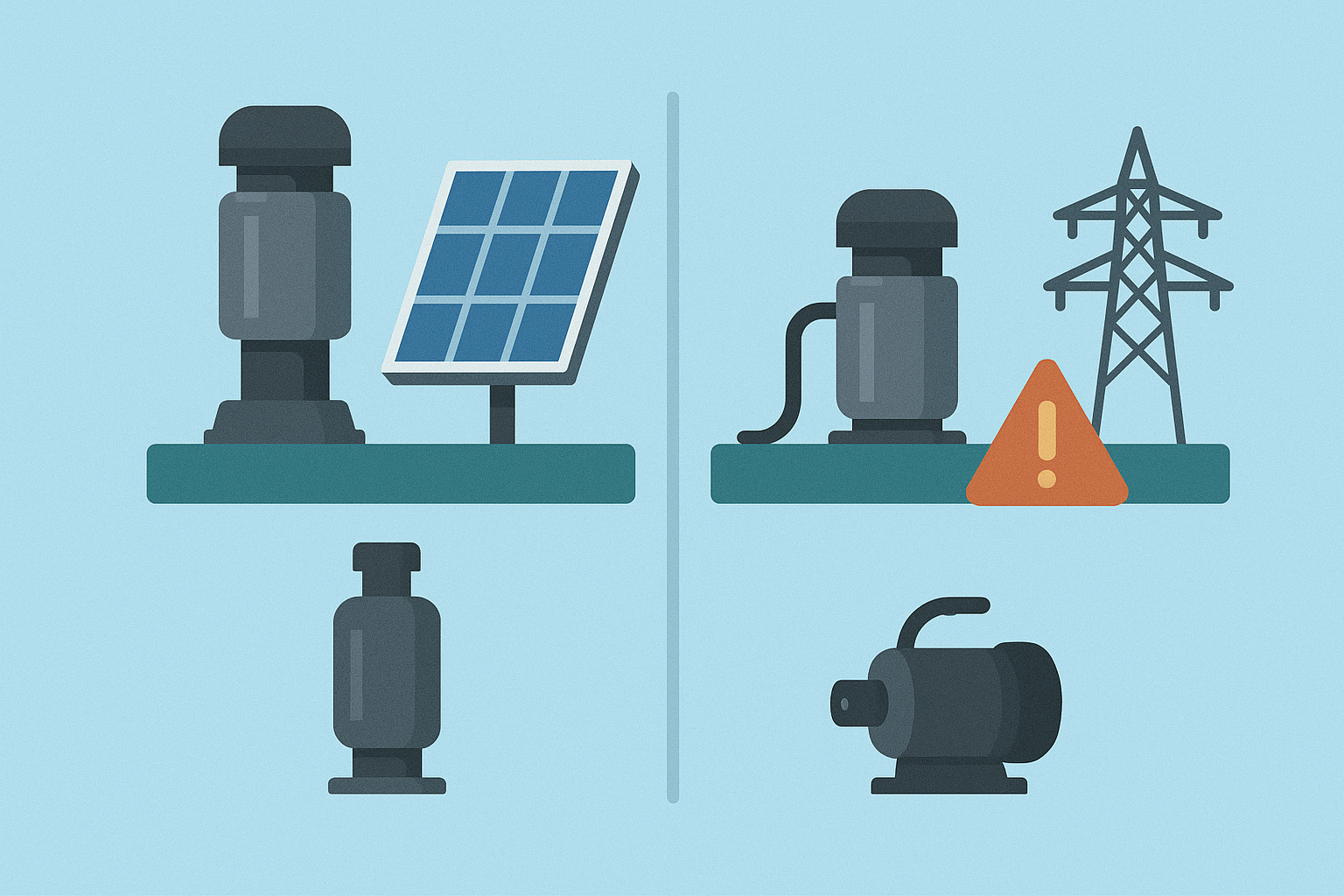 "Reliable Solar Water Pumping in Remote Areas"
"Reliable Solar Water Pumping in Remote Areas"
Reliability is everything, especially in agriculture. I speak with distributors like Daniel in South Africa, and they tell me their customers cannot afford downtime. If the water stops, their business stops. This is the main reason why solar pumps are becoming so popular in regions with unstable power. You are not just buying a pump; you are buying energy independence. This means you control your water supply, not the local power company. Our pumps are designed specifically for these tough situations, ensuring water flows when it is needed most, regardless of the grid's status.
Energy Independence is Key
The biggest advantage of a solar pump is that it generates its own power. It will work during city-wide blackouts or in areas with no grid at all. This is a game-changer for agriculture in developing countries. An electric pump is useless the moment the power goes out. For a farm that depends on irrigation, a few hours without water on a hot day can be a disaster. With a solar pump, you have peace of mind that your water source is secure.
Performance in All Conditions
People often ask, "What happens on a cloudy day?" Our solar pump inverters use advanced MPPT (Maximum Power Point Tracking) technology. This technology maximizes the power from the solar panels, so the pump can still work well even in low-light conditions. Our pumps also have a wide operating voltage range. This allows them to start pumping earlier in the morning and continue later in the afternoon, giving you a longer pumping day and more water.
Built for Tough Environments
Reliability also comes from strong construction. We build our pumps with corrosion-resistant stainless steel. This makes them perfect for the high-temperature and dusty environments common in Africa and the Middle East. We also include important protections in our inverters, like dry-run protection to stop the pump if the well runs dry, and overload protection to safeguard the motor. These features prevent damage and make our pumps last much longer, which is a key requirement for serious distributors.
How do maintenance needs and lifespan compare?
Tired of frequent pump repairs and the hassle of maintenance? The downtime and costs can be a major headache, especially when you need water the most.
Solar well pumps need very little maintenance because our models use brushless DC motors with few moving parts. Electric pumps can need more service. A well-maintained solar pump system can last over 20 years, with the pump itself lasting 10-15 years.
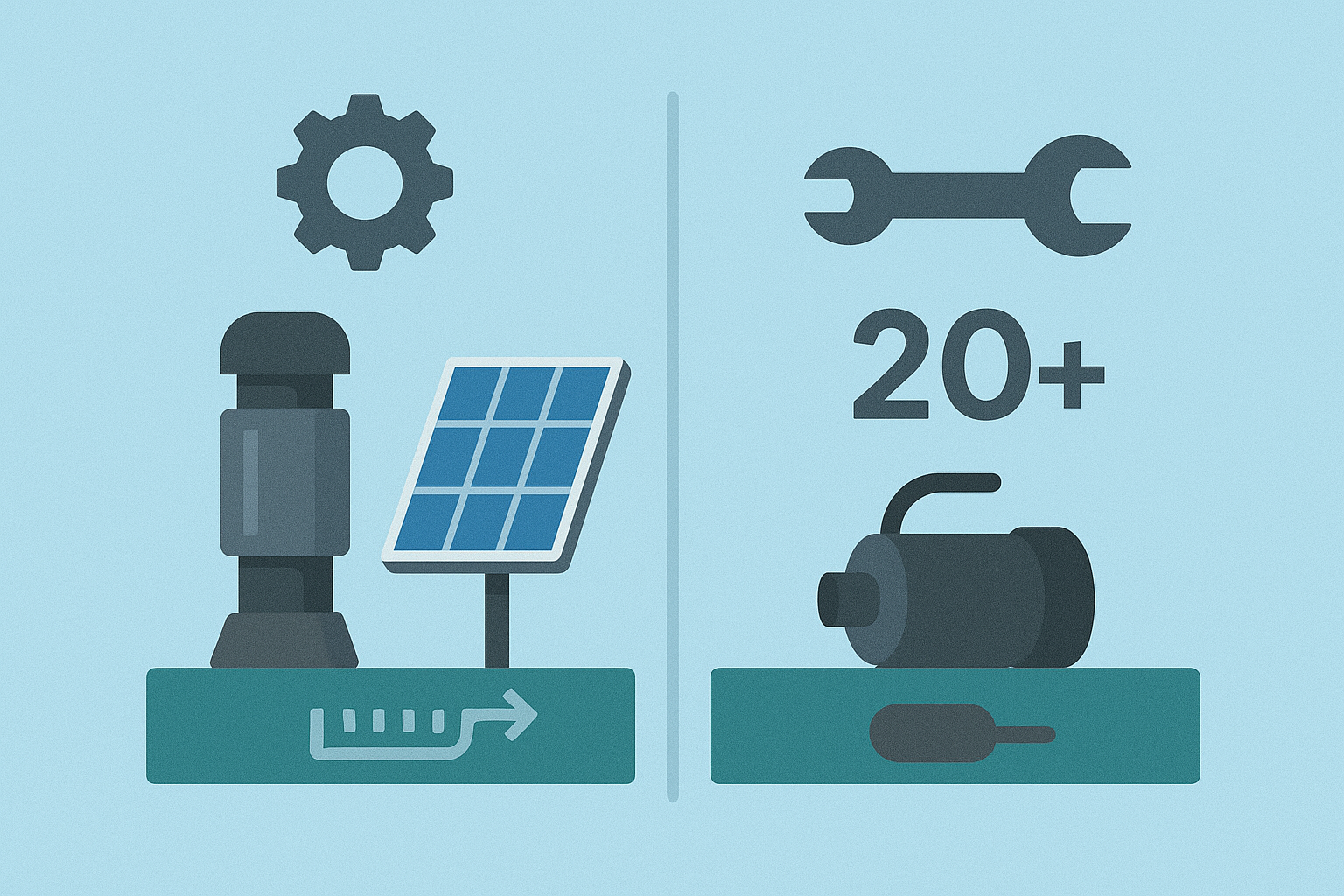 "Low Maintenance Solar Water Pumps"
"Low Maintenance Solar Water Pumps"
As a factory, we focus on engineering that lasts. Our goal is to create products that our distributors can sell with confidence. When you sell a pump, you don't want your customer calling you every few months with a problem. Lower maintenance means happier customers and a better reputation for your business. This is why we chose to build our solar pumps with high-quality, durable components. For a distributor, this translates directly to higher profits because you spend less time and money on after-sales service. A long product lifespan is a promise of quality.
Why Brushless Motors Matter
The heart of our solar pumps is an advanced brushless DC motor. Traditional motors have brushes that wear down over time and need to be replaced. Our brushless design has no such parts. There is less friction, less heat, and almost nothing to wear out. This simple but important difference means our pumps are more efficient and have a much longer service life with minimal intervention. You just install it and let it do its job.
Lifespan of the System Components
A solar pumping system has three main parts. The solar panels are incredibly durable and usually come with a performance warranty of 25 years. Our stainless steel submersible pumps are built to last 10-15 years in normal conditions. The solar pump inverter, which is the brain of the system, has a lifespan of about 8-10 years. When you compare this to a standard electric pump that might need major service or replacement every 5-7 years, the long-term value of solar becomes very clear.
What This Means for a Distributor
For our B2B clients, this low-maintenance, long-lifespan design is a powerful selling point. It allows them to offer their customers, like small and medium-sized farmers, a product that works reliably for years. It also makes it easy for us to offer a long warranty period of 3-5 years. This gives buyers the confidence they need to invest in a superior technology. It builds trust and a strong business relationship.
Conclusion
For long-term savings and reliability, especially in off-grid areas, a solar well pump is the clear winner. The higher initial investment quickly pays for itself with free energy.
